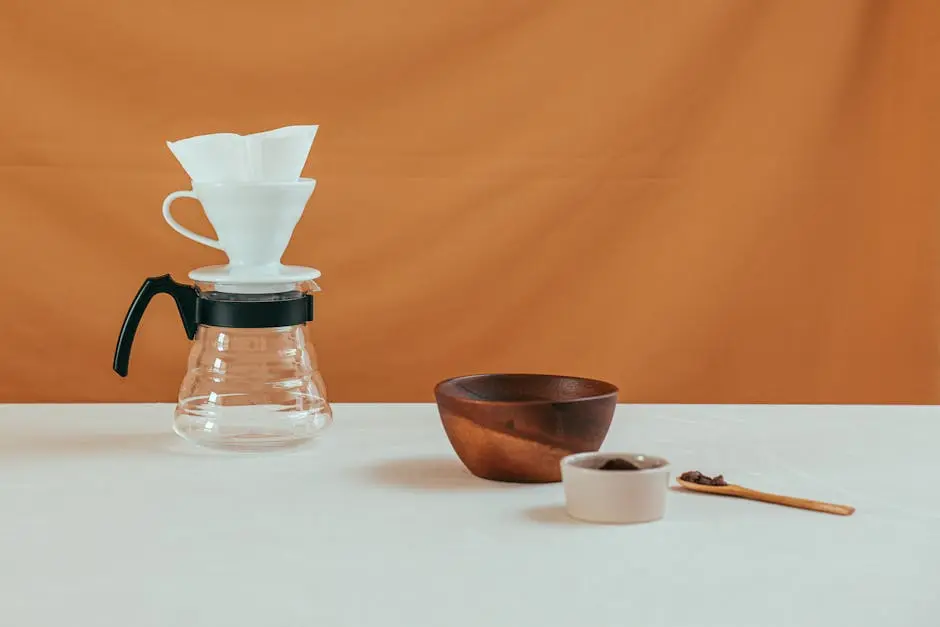Brewing the perfect cup of organic coffee is an art that combines quality, technique, and a touch of personal preference. In the heart of Arizona, where the sun shines bright and the air is dry, crafting that ideal cup can be a delightful experience. In this blog, we will explore the key steps and tips you need to awaken your senses and enjoy a fresh, flavorful brew right in the comfort of your home.
Understanding Organic Coffee: What Sets It Apart
Organic coffee stands out not only for its rich and diverse flavors but also for the methods used to cultivate it. Unlike conventional coffee, which often involves the use of synthetic fertilizers and pesticides, organic coffee is grown in harmony with nature. Farmers practice sustainable agriculture, nurturing the soil and preserving biodiversity. This holistic approach results in coffee beans that are not just tastier, but also better for the environment. When you choose organic coffee, you’re not just selecting a beverage; you’re supporting ethical farming practices that benefit both the land and the farmers who cultivate it.
Furthermore, the flavor profile of organic coffee tends to be more nuanced, as the beans are allowed to mature naturally. This practice often leads to beans that exhibit a broader range of flavor notes, from fruity and floral to nutty and chocolatey. The absence of chemicals means that these subtle flavors can shine through in the cup, providing a more enjoyable coffee experience. As you delve into the world of organic coffee, you’ll discover that it offers a tasting adventure like no other.
Another essential aspect of organic coffee is its impact on health. Many coffee drinkers are becoming increasingly aware of what they consume, and organic coffee aligns perfectly with a health-conscious lifestyle. By skipping the chemicals, you’re reducing your exposure to potentially harmful substances. Plus, organic coffee is often harvested at higher altitudes, which is known to produce better quality beans. So, if you care about what you put into your body, organic coffee is an excellent choice that aligns your values with your taste buds.
Choosing the Right Beans for Your Arizona Home
Selecting the right organic coffee beans is crucial for achieving that perfect cup. Start by considering your taste preferences. Do you prefer a medium roast with balanced flavors or a dark roast that delivers a more robust taste? Arizona’s unique climate can influence your coffee experience as well; locally sourced beans may reflect the region’s characteristic traits. When looking for beans, ensure they are certified organic, which guarantees that they were grown without synthetic additives.
Many coffee enthusiasts recommend experimenting with a few different varieties to see what resonates with your palate. Don’t shy away from engaging with local roasters who specialize in organic coffee. These artisans often curate their selections with great care, and their passion for coffee can give you insights into what you’re drinking. Be sure to ask questions about the origin, roasting process, and flavor notes — it can transform your coffee selection experience from mundane to fascinating.
A little tip: Always check the roast date! Freshness is vital for flavor. Beans that are past their prime can lead to a flat and uninviting cup. Look for small batches of beans roasted within the last few weeks. Additionally, storing your coffee beans correctly is essential to maintain their freshness. Keep them in an airtight container in a cool, dark place, away from sunlight and moisture, to preserve their lively flavors.
The Importance of Freshness: Grinding Your Coffee
The impact of grind size on your coffee cannot be overstated; it is often the cornerstone of a great brew. The key is to grind your organic coffee beans just before brewing. Freshly ground coffee releases aromatic oils that enhance the overall flavor. Investing in a quality burr grinder can significantly improve your coffee experience, offering a consistent grind size that uniformizes extraction and maximizes taste.
Different brewing methods require different grind sizes. For example, a French press calls for a coarse grind, while espresso demands a fine grind. If you’re unsure, start with a medium grind setting and then adjust based on your taste test results. Experimentation is part of the fun! Remember, the fewer times coffee is ground before brewing, the better it holds onto its unique characteristics, so make this step a priority in your process.
Additionally, the freshness of the beans you grind is equally crucial. Storing ground coffee can diminish its quality, much faster than whole beans. Commit to grinding only what you need for each brew. Even the subtle differences in grind size can alter your brew, leading to a cup that under or over-extracts the richness of the organic coffee. So, embrace the grind and enjoy the robust flavors that come with it!
Water Quality and Temperature: Key to Brewing Success
Water plays an often-overlooked yet important role in brewing a perfect cup of organic coffee. Since coffee consists of 98% water, the quality of that water directly influences the taste. Start with clean, filtered water whenever possible, as impurities can lead to off-flavors. If your tap water has a strong taste or odor, it’s worth investing in a water filtration system.
Equally important is the temperature of the water used for brewing. The ideal temperature range for extracting the rich flavors of organic coffee is typically between 195°F and 205°F (90°C to 96°C). Water that’s too hot can scorch the beans, producing bitter flavors, while water that’s too cool leads to under-extraction, resulting in a sour brew. A simple kitchen thermometer can help you achieve just the right temperature, or many modern coffee makers have this feature built in.
Lastly, when brewing, ensure to use the correct coffee-to-water ratio. Generally, a standard guideline is two tablespoons of coffee for every six ounces of water. However, feel free to adjust to your taste preferences, especially if you enjoy a bolder cup. By perfecting both the water quality and temperature, you’re setting the stage for a beautifully brewed cup of organic coffee that you can truly savor.
Brewing Methods: Exploring Options for Perfect Flavor
With so many brewing methods available, choosing the right one can feel daunting. However, each method offers its unique characteristics, allowing you to explore various flavor profiles and experiences. If you’re after convenience, a drip coffee maker is an excellent choice for brewing a consistent cup. Just load it with fresh organic beans and water, and let the machine do the rest. But if you’re seeking a more hands-on approach, consider a pour-over method. This allows greater control over factors like water temperature and flow rate, giving you the opportunity to experiment with taste.
Another popular method is the French press, which allows for full immersion of the coffee grounds, resulting in a rich and full-bodied brew. It’s a great option for those who truly appreciate the flavor nuances in their organic coffee. Adjusting the steeping time can further customize how strong or mild your cup will be, making the French press an adaptable choice.
For the adventurous, the espresso machine opens up a world of possibilities. Crafting an espresso shot requires precise pressure and timing but promises rich, concentrated flavors. You can elevate drinks with steamed milk and syrups, creating a café experience right at home. Whichever method you choose, each approach teaches you a little more about the beans and how to best bring out their unique characters. So don’t hesitate to explore and find which brewing style suits your preference best!
Enhancing Your Brew: Tips for Flavor Adjustments
Once you’ve perfected the basics of brewing your organic coffee, it’s time to have some fun with flavor! Many enthusiasts find joy in enhancing their coffee experience through various add-ins and techniques. For starters, consider experimenting with different milk or milk alternatives. Almond milk, oat milk, or even coconut milk can add a delightful creaminess and unique flavor twist to your brew.
Beyond milk alternatives, adding spices can elevate your cup as well. A sprinkle of cinnamon or nutmeg can infuse warmth and richness into your coffee, while a dash of vanilla extract or flavored syrups can introduce sweetness and complexity. Don’t be afraid to get creative—try adding a pinch of salt to soften the bitterness or even a scoop of ice cream for a decadent treat!
Finally, consider the method by which you serve your coffee. The presentation can impact your overall enjoyment. Pour your brewed coffee into your favorite mug, perhaps one that holds sentimental value, or try serving it in a clear glass to showcase the rich color and inviting steam. Surrounding yourself with the right ambiance can heighten your senses and make each sip more memorable. Remember, your journey in brewing and enhancing your organic coffee should be as enjoyable as the coffee itself!
Enjoying Your Perfect Brew
By following these simple steps and utilizing fresh, organic ingredients, you can elevate your coffee experience at home. Remember, each cup tells a story of quality, care, and personal touch. So, gather your supplies and enjoy the aromatic journey that comes with brewing your favorite organic coffee.


